Burnout by Emily Nagoski and Amelia Nagoski explains why women experience burnout differently than men—and provides a simple, science-based plan to help women minimize stress, manage emotions, and live a more joyful life.
Sisters Emily Nagoski, PhD, and Amelia Nagoski, DMA, are here to help end the cycle of feeling overwhelmed and exhausted.
Instead of asking us to ignore the very real obstacles and societal pressures that stand between women and well-being, they explain with compassion and optimism what we’re up against—and show us how to fight back.
Scroll down to read 30 Quotes from Burnout By Emily Nagoski and Amelia Nagoski.
Get The Book: Burnout By Emily Nagoski and Amelia Nagoski available now on Amazon.
30 Quotes from Burnout By Emily Nagoski and Amelia Nagoski
-
We thrive when we have a positive goal to move toward, not just a negative state we’re trying to move away from.

-
You are not here to be “productive.” You are here to be you, to engage with your Something Larger, to move through the world with confidence and joy.
-
Most of us have spent our whole lives being taught to believe everyone else’s opinions about our bodies, rather than to believe what our own bodies are trying to tell us.
-
For some of us, it’s been so long since we listened to our bodies, we hardly know how to start understanding what they’re trying to tell us, much less how to trust and believe what they’re saying.
-
White men grow on an open, level field. White women grow on far steeper and rougher terrain because the field wasn’t made for them. Women of color grow not just on a hill, but on a cliffside over the ocean, battered by wind and waves. None of us chooses the landscape in which we’re planted.
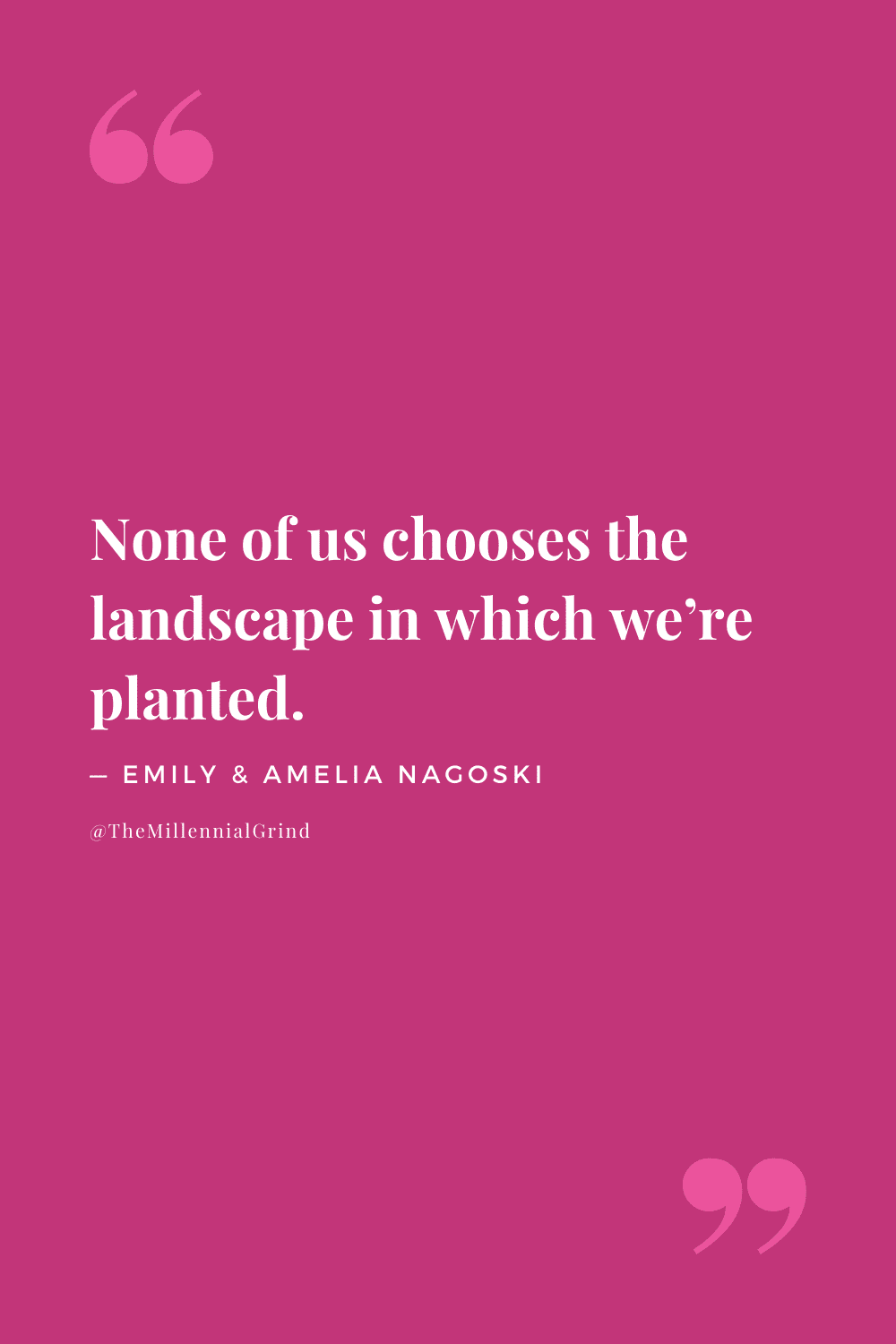
-
Stress is not bad for you; being stuck is bad for you.
-
The problem is the world has turned “wellness” into yet another goal everyone “should” strive for, but only people with time and money and nannies and yachts and Oprah’s phone number can actually achieve.
-
All your body requires of you is that you turn toward it with kindness and compassion, with nonjudgment and plain-vanilla acceptance of all your contradictory emotions, beliefs, and longings.
-
The belief that the people around us will reciprocate in proportion to what we give them is called “trust”.
-
Not knowing why is, itself, a profound type of suffering.
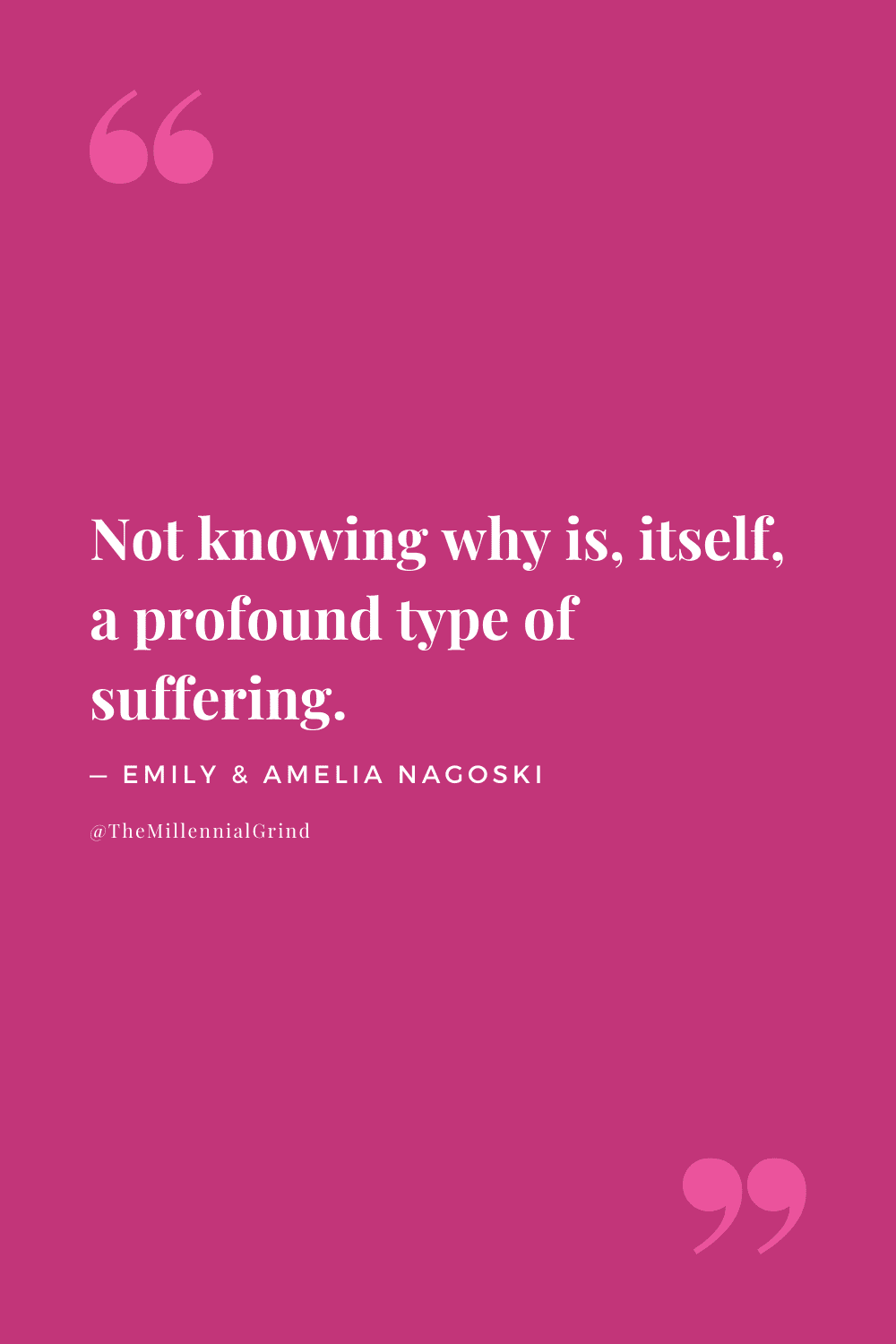
-
Relax your belly. It’s supposed to be round. The Bikini Industrial Complex has been gaslighting you.
-
Turn toward that self-critical part of you with kindness and compassion. Thank her for the hard work she has done to help you survive.
-
Human Giver Syndrome – the contagious belief that you have a moral obligation to give every drop of your humanity in support of others, no matter the cost to you – thrives in the patriarchy, the way mold thrives in damp basements.
-
To be complete without social connection is to be nourished without food. It doesn’t happen. We get hungry. We get lonely. We must feed ourselves or die. We don’t mean you “need a man” or any kind of romantic partner. We mean you need connection in any or all of its varied forms.
-
You might notice yourself checking things, picking at things, thinking obsessive thoughts, or fiddling with your own body in a routinized kind of way. These are signs that the stress has overwhelmed your brain’s ability to cope rationally with the stressor.
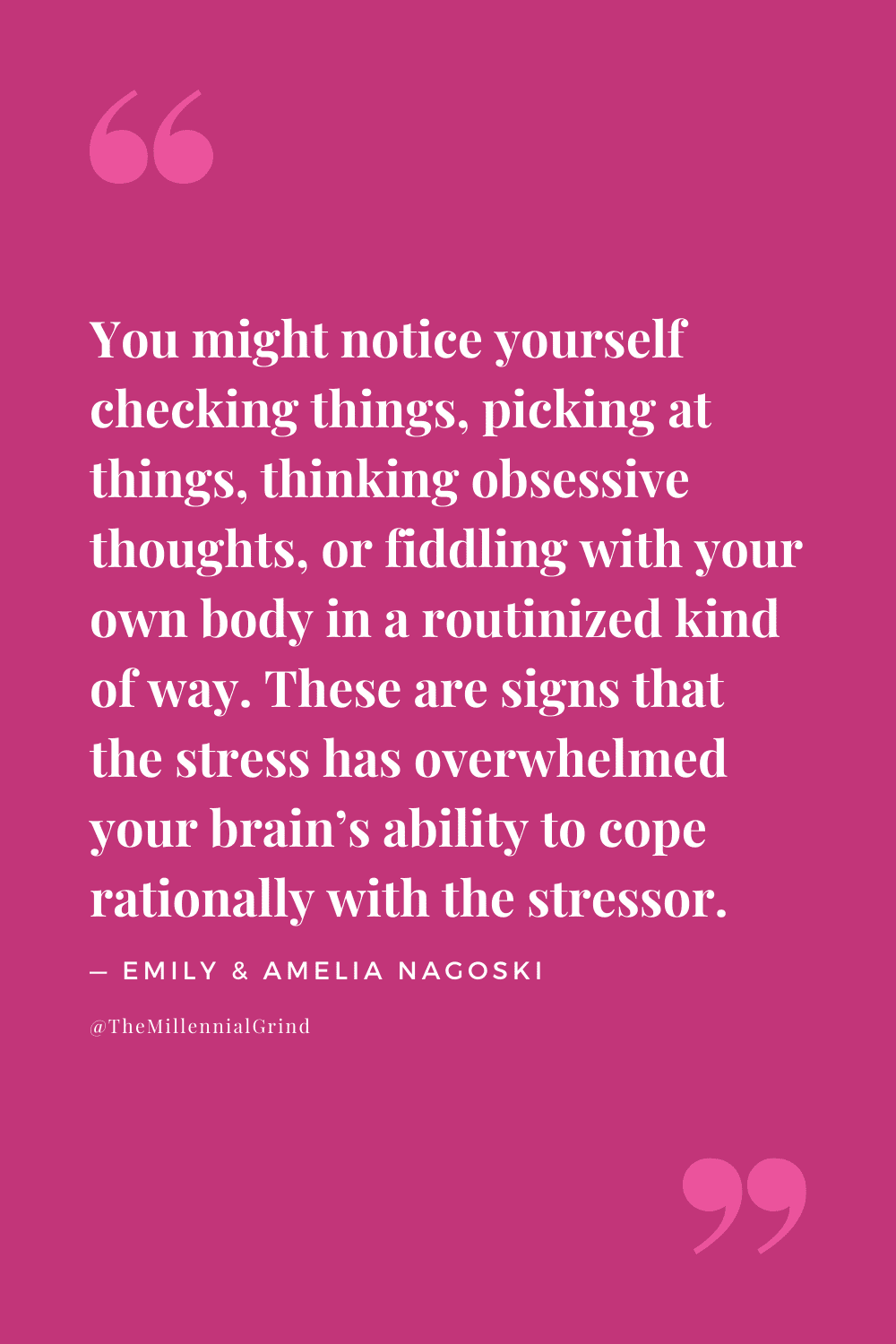
-
When you are cruel to yourself, contemptuous and shaming, you only increase the cruelty of the world; when you are kind and compassionate to yourself, you increase the kindness and compassion in the world.
-
Dread is anxiety on steroids.
-
Rest is, quite simply, when you stop using a part of you that’s used up, worn out, damaged, or inflamed, so that it has a chance to renew itself.
-
The quality of our lives, day to day, is measured by our freedom to choose to stay or leave. That freedom comes when we have abundance enough and safety enough to let go of what is broken and reach for something new.
-
“Wellness”is the freedom to move fluidly through the cycles of being human. Wellness is thus not a state of being; it is a state of action.
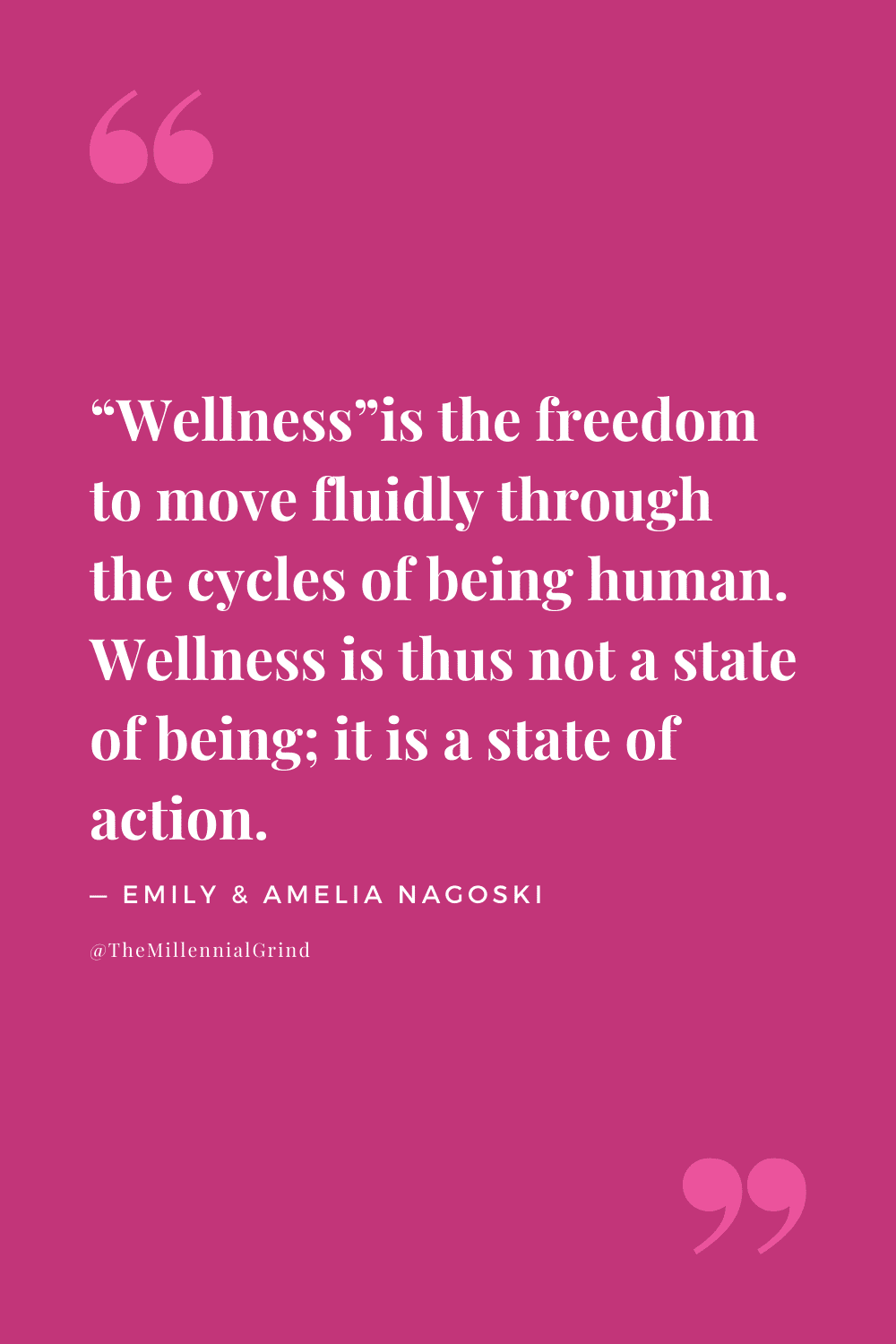
-
Many of us are taught to see a shift in goals as “weakness” and “failure,” where another culture would see courage, strength, and openness to new possibilities.
-
Your brain has a built-in mechanism to assess when it’s time to quit. Listen to its quiet voice.
-
The game is rigged. Women and girls—especially women and girls of color—are systematically excluded from government and other systems of power. It’s called “patriarchy”.
-
Embrace the mess. See yourself as “the new hotness.” Practice seeing everyone as “the new hotness.” And tune in to your body’s needs.
-
Connection—with friends, family, pets, the divine, etc.—is as necessary as food and water. Humans are not built to function autonomously; we are built to oscillate between connection and autonomy and back again.
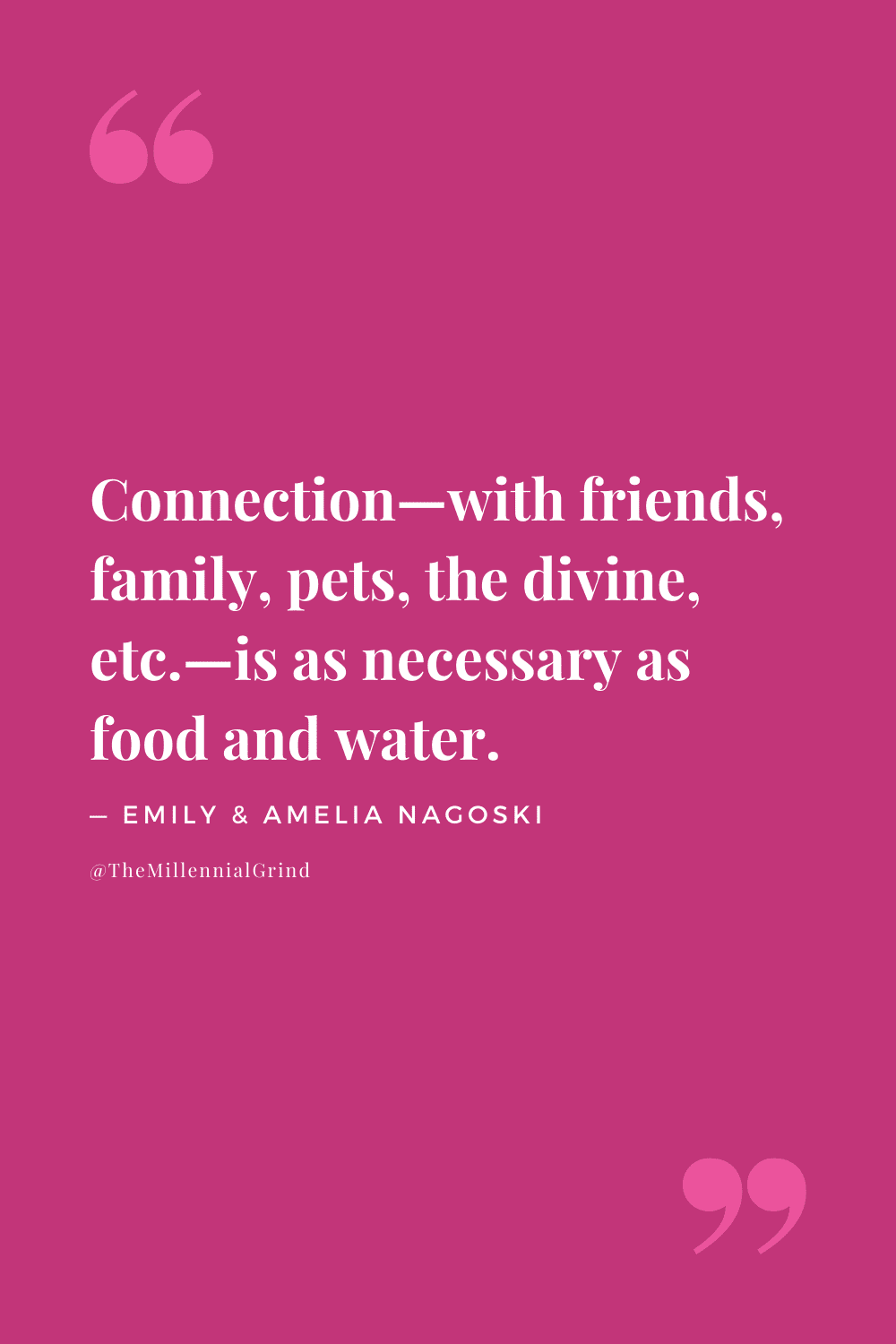
-
Sadness, rage, and the feeling that you are not “enough” are forms of loneliness. When you experience these emotions, connect.
-
Getting the rest your body requires is an act of resistance against the forces that are trying to rig the game and make you helpless. Reclaim rest and you reclaim sovereignty over your own life.
-
We don’t have to wait for the world to change before we begin to heal ourselves and one another.
-
The cure for burnout is not “self-care”; it is all of us caring for one another.
-
Trust your body. Be kind to yourself. You are enough, just as you are right now. Your joy matters. Please tell everyone you know.
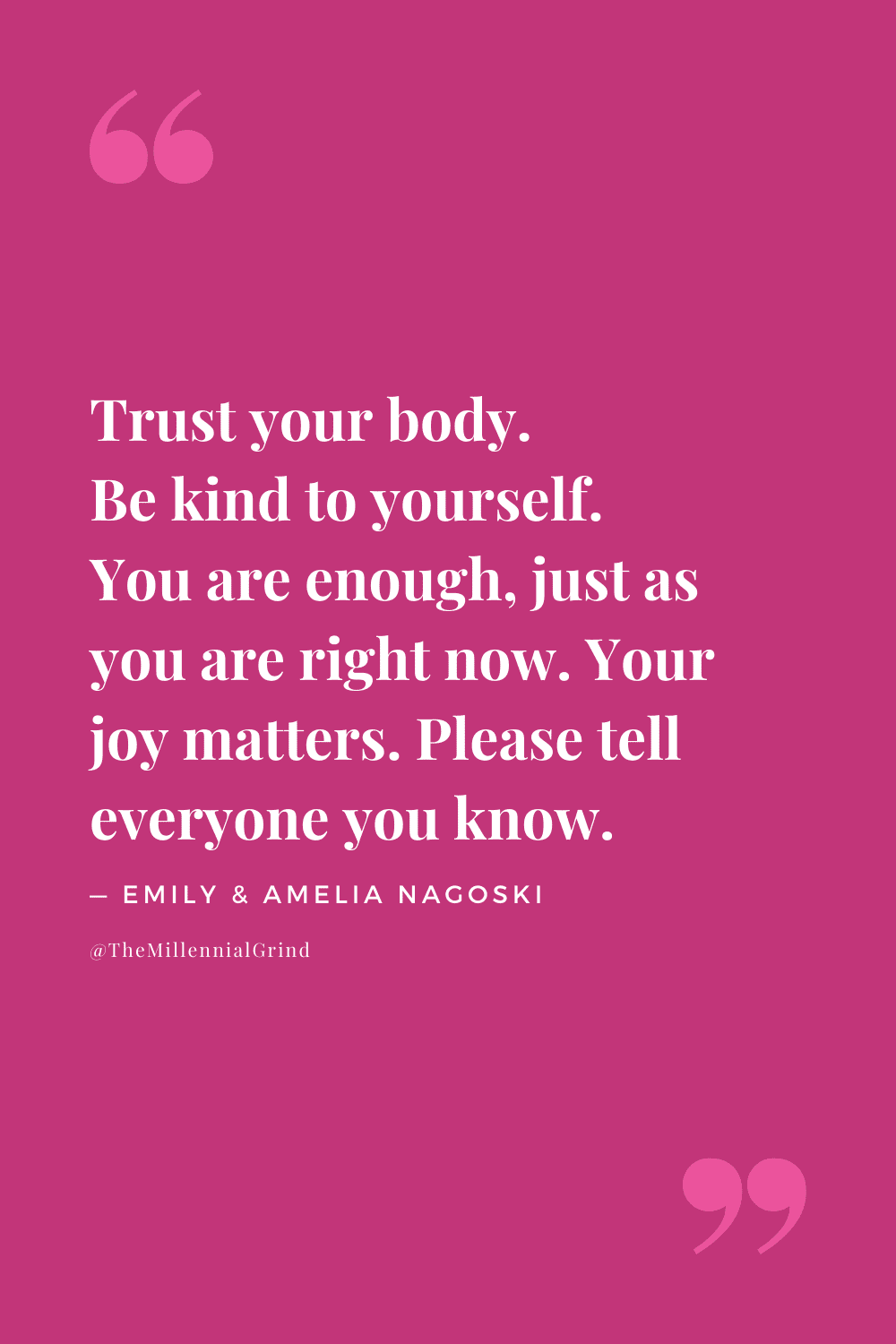
Which quote from Burnout By Emily Nagoski and Amelia Nagoski is your favorite?
READ NEXT: 30 Quotes From Keep Moving By Maggie Smith